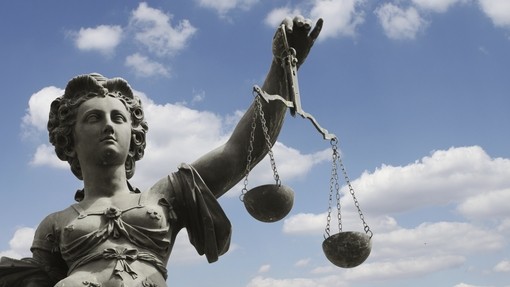Indirect religion or belief discrimination: Primary teacher forced to choose between her job and her marriage vows

Details
Following her husband’s arrest on suspicion of downloading indecent images of children and voyeurism, primary school teacher Ms Pendleton was given an ultimatum by her employer: if she continued her relationship with her husband, she would be dismissed due to the school’s lack of trust and confidence in her. She chose to stand by her husband and was dismissed. In the case of Pendleton -v- Derbyshire County Council and The Governing Body of Glebe Junior School UKEAT/0238/15 the Employment Appeal Tribunal (EAT) was asked to decide if this was indirect religion or belief discrimination.
The law
According to the Equality Act 2010, indirect discrimination on grounds of religion or belief happens when:
- A applies to B a provision, criterion or practice (PCP)
- B has a particular religion or belief, or lack of religion or belief
- A applies or would apply that PCP to persons not of the same religion or belief as B
- The PCP puts or would put persons of B’s religion or belief, or lack of religion or belief at a particular disadvantage when compared with other persons
- The PCP puts or would put B at that disadvantage
- A cannot justify the PCP by demonstrating it is a proportionate means of achieving a legitimate aim
The facts
Ms Pendleton had been employed by Glebe Junior School since September 2001. Her husband, the head teacher of another local school within the same cluster, was arrested in January 2013 on suspicion on downloading indecent images of children and voyeurism, namely taking covert photographs of male pupils getting changed.
The Local Authority Designated Officer (LADO) said there was no evidence Ms Pendleton knew about her husband’s activities, however the head teacher of the school made it clear that if Ms Pendleton continued to stand by her husband, the school could not support her continued employment.
Ms Pendleton, a practicing Anglican Christian, decided to stay with her husband to honour the marriage vows she took before God and which she and other Christians held sacred.
Following a disciplinary hearing in September 2013, Ms Pendleton was summarily dismissed for gross misconduct on the grounds that she was unsuitable to carry out her safeguarding responsibilities and that her choice to stand by her husband in the circumstances was contrary to the school’s ethos.
Ms Pendleton alleged in employment tribunal proceedings that her dismissal constituted indirect religion or belief discrimination. The tribunal accepted that Ms Pendleton believed marriage was sacrosanct and that her dismissal amounted to a PCP, namely a practice of dismissing those in a relationship with someone convicted of the crimes in question, but found she would have been dismissed irrespective of her religious beliefs so there was no ‘group disadvantage’ - i.e. the PCP did not put persons of Ms Pendleton’s religion or belief at a particular disadvantage when compared with other persons. Ms Pendleton appealed to the EAT. The school also cross-appealed the tribunal’s finding it applied a PCP on grounds there was no repeated ‘practice’ of dismissing people in these circumstances as it was a unique situation.
EAT’s decision
The EAT allowed Ms Pendleton’s appeal and made a finding she had been subjected to indirect religion or belief discrimination. The Tribunal had failed to ask itself the right question when deciding if the practice applied by the school put those with Ms Pendleton’s beliefs at a particular disadvantage. The EAT acknowledged that anyone in a long-term loving relationship would face a disadvantage if asked to choose between their spouse and their career, but held that the question for the tribunal should have been whether those who also held a religious belief in the sanctity of marriage would be at a particular disadvantage; it found that as a group, they would be at a particular disadvantage.
In response to the school’s cross-appeal regarding the finding of a ‘practice’, the EAT held that the tribunal was entitled to decide the school would have made the same decision in relation to any employee in these circumstances, even if the circumstances had never arisen before or since, and that this was sufficient to amount to a practice.
What this means for employers…
Employers should pay special attention when making decisions that could conflict with employees’ religious or other beliefs. Navigating the Equality Act 2010 to determine if you are at risk of direct or indirect discrimination can be tricky, so if you are in any doubt speak to one of our employment lawyers.






